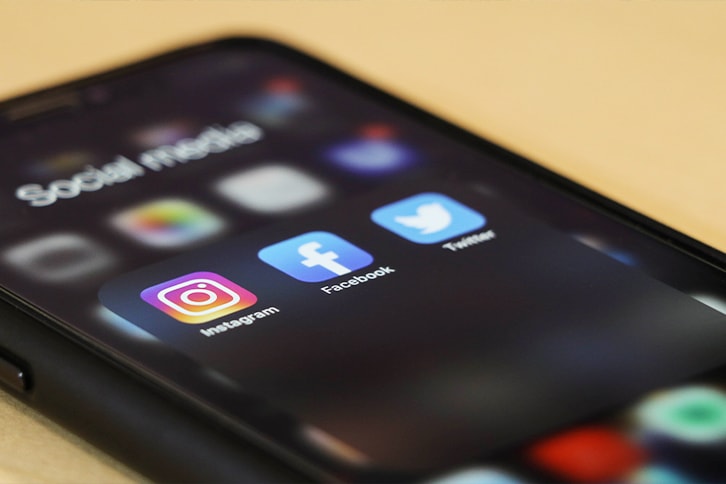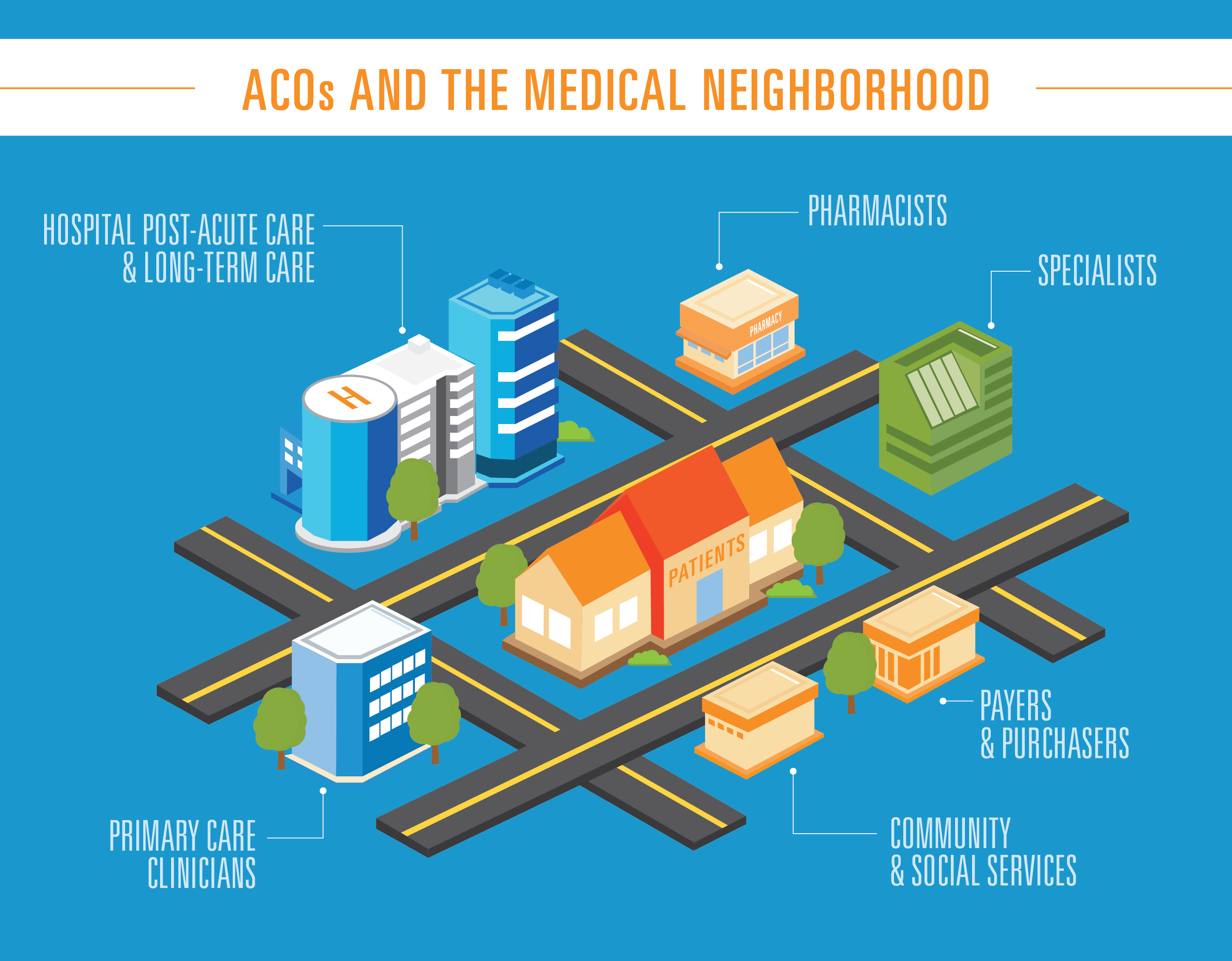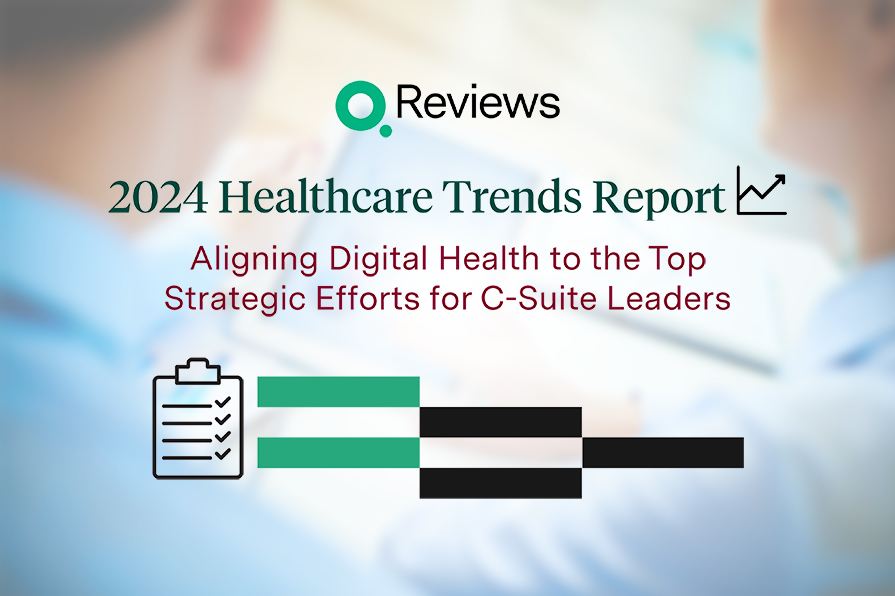
Social Media In Healthcare: What Your Organization Needs to Know

When Twitter debuted in 2006 or Facebook in 2004, healthcare organizations weren’t exactly rushing to establish their presence on those channels. Of course, they had no way of knowing just how pervasive platforms like these would become. Social media is omnipresent in our lives today, with 72 percent of the public using at least some type of social media. It’s a major part of not only how we communicate, but also how we consume news, shop and even receive healthcare.
Social media use in healthcare systems is now nearly universal in the United States. 94 percent of hospitals and health systems have a Facebook page, 51 percent have a Twitter account and 99 percent use Yelp and Foursquare, according to a study from the Journal of Medical Internet Research. While social media allows healthcare organizations to reach new audiences and deepen the relationship with their existing ones, it’s not without its perils.
So if your organization is eager to use social media, you need to navigate the many challenges to reap the benefits of social media in healthcare. Read below for tips on how healthcare organizations can make use of social media while minimizing its downsides.
The Advantages of Social Media in Healthcare
Social media in healthcare presents countless opportunities for patient engagement, marketing and highlighting your brand. In fact, it “can greatly enhance the image and visibility of a medical center or hospital” in the community, according to P&T, a peer-reviewed journal for managed care and hospital formulary management.
With transparency as the new norm, there’s an ever-increasing amount of information on businesses available online. And people are taking advantage of that data. This goes beyond deciding which restaurant to go to, but also where to receive healthcare. One study cited in P&T found that 57 percent of consumers said that a hospital’s social media presence would strongly influence their choice regarding where to go for services.
What’s more, a hospital’s use of social media makes it seem more clinically advanced than the competition. The same study showed 81 percent of respondents viewing a strong social media presence as an indication that a hospital offers cutting-edge technologies. A separate study revealed that 12.5 percent of healthcare organizations polled had successfully used social media to attract patients.
While leveraging social media is a mainstream tactic in running any modern business, however, doing so can pose numerous hazards. This is especially the case in healthcare.
The Challenges of Social Media in Healthcare
Social media use in healthcare settings can lead to violations under federal and state privacy laws — even if they’re unintentional. According to a Journal of the American College of Cardiology study, it “is not uncommon to hear anecdotes about members of the health care team being terminated from their occupation on the basis of misuse of social media.”
“The Health Insurance Portability and Accountability Act, which gives patients peace of mind to fully confide in their health care team without consequence, is important to remember when using social media,” the study’s authors wrote. “Many healthcare facilities and organizations have guidelines to help direct the medical community in the proper use of social media.”
Social media has also proven to be an imperfect yardstick when it comes to assessing clinical care. A 2018 Indiana University study suggested there was only a partial relationship between patient feedback aggregated from social media and traditional measures of clinical care, such as the federal government’s Hospital Compare website.
One of the researchers, Victoria Perez, describes the results. She says, “Crowd-sourced ratings reflect measures of quality most easily observed, which is not all that matters in health care. While crowd-sourced sites may provide similar information to the government’s patient experience surveys, they shouldn’t be seen as a substitute means of measuring clinical quality or patient safety.”
Guidelines for Social Media and Healthcare
Social media use in healthcare can indeed be risky — but that doesn’t mean it’s not worth the effort. There are steps you can take to navigate the challenges of social media in healthcare while still reaping the rewards. Here are a few important best practices to keep in mind:
Remove identifying information.
Regardless of what medium of communication you use, HIPAA will still apply. Healthcare organizations know that they can’t just share patients’ medical records, but violations are not always as clear-cut. Someone who works in marketing at a physical therapy clinic, for example, might not see anything wrong with taking a picture of a smiling patient and posting it to their official social media accounts. But both photos and videos of patients are considered to be protected health information. And PHI “can only be included in social media posts if a patient has given their consent, in writing, to allow their PHI to be used and then only for the purpose specifically mentioned in the consent form,” according to HIPAA journal.
Don’t interact with patients.
It’s not uncommon for patients to follow their providers on social media, particularly if they’re pleased with their treatment. But providers who accept their requests or follow them back are treading on dangerous ground. Healthcare providers “who interact with their patients on social media may be violating the patient-HCP boundary even if patients initiate the online communication,” P&T shares. No matter how innocuous an online interaction with a patient is, it’s best for providers to simply ignore requests.
Stay on top of permissions.
A disgruntled former employee with access to your social channels can be disastrous. In recent years, new or soon-to-be let-go employees have hijacked their employer’s social media accounts. Take, for example, the recently fired employee at British entertainment retailer HMV. She live-tweeted about company layoffs, or when the New York Daily News Twitter account went rogue. While revoking access before letting an employee go might seem like a no-brainer, these tasks may slip through the cracks. Don’t think it can’t happen to you. To avoid a fiasco, organizations should regularly monitor who has access to their social media accounts. Any time an employee is leaving, immediately revoke their privileges.
Provide some guidance.
Damaging social media posts don’t always come from an organization’s official accounts. They can also come from employees’ personal accounts. Often, this is not a deliberate act. Employees might simply just not know any better. Consider creating a set of formal social media guidelines for your employees to eliminate any uncertainty. Major healthcare providers like the Mayo Clinic and Mount Sinai have put together social media handbooks for their employees. These cover topics like patient privacy, copyright violations and appropriate subject matter. When sharing guidelines like these with employees, encourage them to reach out with any questions they might have.
Take Your Social Media Strategy to the Next Level
Interested in learning more about how to limit the risks of social media at your facility? Let’s talk. Quality Reviews® provides a buffer for hospitals and other healthcare organizations against social media risks, allowing them to ensure a higher level of service. With hospitals today operating on narrow margins, losing even one patient over poor customer service or a bad review is too many. Fortunately, our products leverage the power of real-time patient feedback. Healthcare leaders can quickly identify and act on service recovery opportunities before they turn into negative online reviews.
For better or for worse, social media is here to stay. It’s become critical for nearly every industry, and healthcare is no exception. While it can pose a risk, you shouldn’t let the challenges of social media in healthcare scare you away from reaping the benefits. With a thoughtful approach and strict compliance, social media can become a key part of your marketing strategy.








